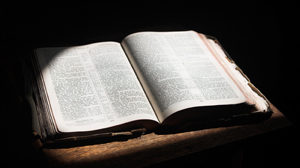Reflection:
This passage of Matthew deals with the calling of the Twelve. The significance of the “Twelve” is not missed on Matthew’s audience. There were twelve patriarchs, as well as, twelve tribes in Israel. The calling of the Twelve is a reconstitution of Israel, as the People of God. Other than Peter we know very little about the other eleven disciples. One thing we do know is that there was great diversity within this group. Matthew is a tax collector, which meant he had to have been a collaborator with the Romans, who were the occupying force of Israel. At the other end of the spectrum there is Simon, the Zealot, a member of the political party that wanted to overthrow the Roman government. The genius of Jesus is that He could weld these diverse men together into a community of service and love.
In this call passage is the only time Matthew refers to the Twelve as “apostles.” First they are “called.” In the Bible, to be called has the power of a “summons.” It is an invitation one can not refuse. It is something of a court order for jury duty, or a draft in the army. In other words, we are free, but we won’t want to refuse even if the opportunity to do so presented itself. Remember the “calls” of Abraham, Moses, Gideon, Judith, Ester, Jael, and Mary to name a few. Second, to be an “apostle” means to be “sent.” In Matthew one is only “sent” after one spends time with Jesus, knows the Father’s Will, ministers to the lost sheep, preaches the Word, heals the sick, and casts out demons. God calls whoever God wants. Through baptism we are all called and are being sent. We have been summoned.
Fr. Ken O’Malley, C.P., is the formation director and local superior at Holy Name Passionist Community in Houston, Texas.

